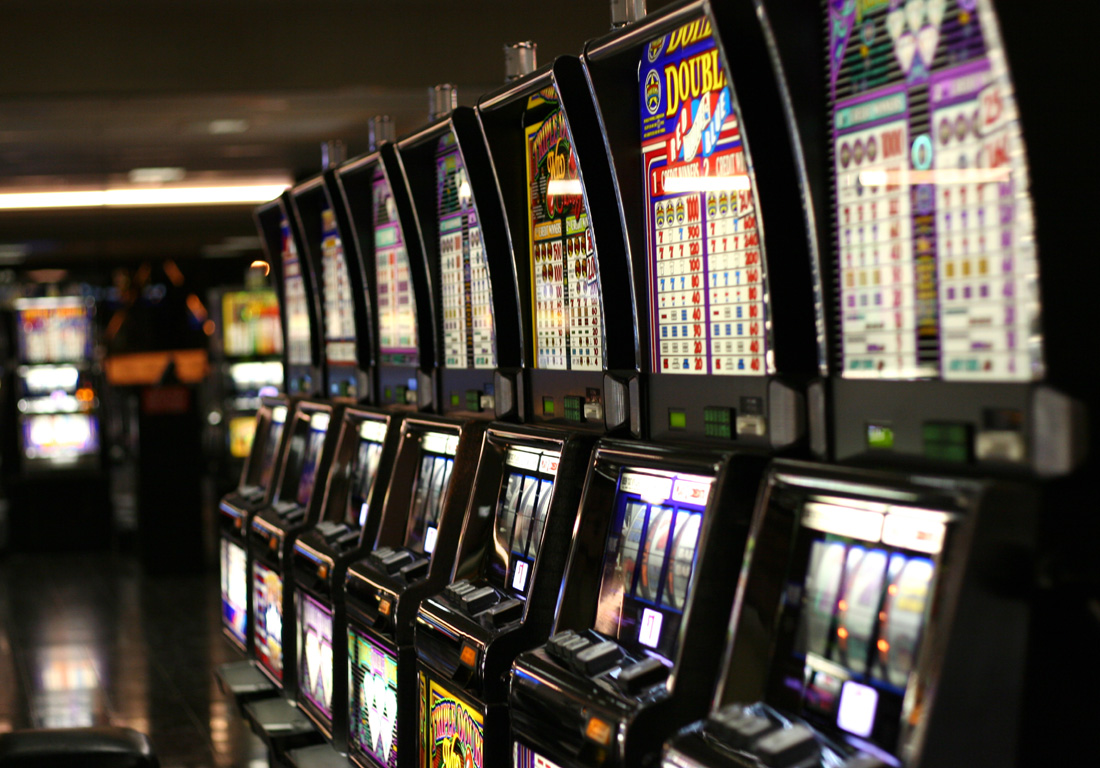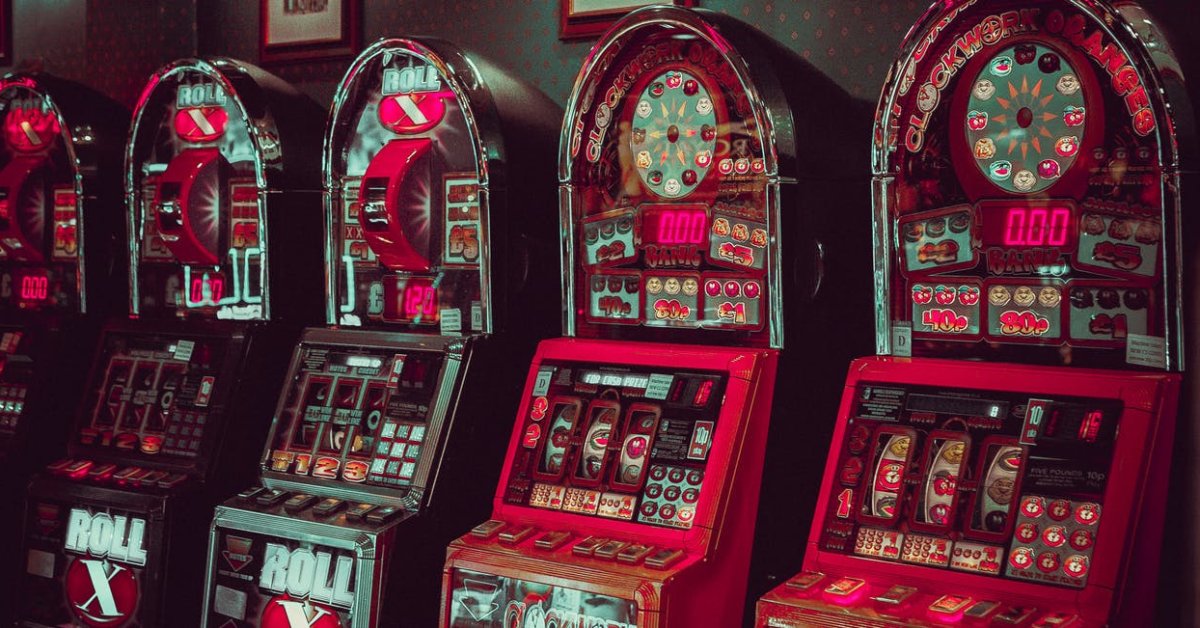Math Of Slot Machines
- Published by institute for the study of gambling and commercial gaming-025 college of business administration reno, nv ph: 775-784-1442 fx: 775-784-1057.
- The math behind slot machines dictates that it be random. It doesn’t matter when the last jackpot hit or how much money was wagered; you have the same chance of hitting a jackpot on a 'cold' machine as a 'hot' one. And because it’s random, it’s impossible to predict when or where a payout will happen.
- Math Of Slot Machines Machine
- Math Of Slot Machines Free Play
- Math Behind Slot Machines
- Math Of Slot Machines Jackpots
Slot machines – and, in fact, any gambling machine – pays back a percentage of bets in such a way that the casino generates a profit. That payback percentage varies from casino to casino and from machine to machine.

The more you understand about the math of your chosen game, the more successful you’ll be. THE RANDOM NUMBER GENERATOR. For a slot machine, the random number generator (RNG) is everything. In the early days, slot machines used mechanical concepts for randomization which obviously has limitations.
The attraction that slot games have is that they sometimes produce profits in the short term.
But in the long run, the math ensures that the casino will profit.
In this post, I look at some of the math behind how slot machines and payback percentages work.
It’s not complicated, but you should understand it before putting your money into one of these games.
Odds, Probability, and Slot Machines
The first thing you should understand is that the outcome of any given spin on a slot machine is random. It’s also an “independent event.” This means that what happened on the previous spin has no effect on the probability of getting a result on the next spin.
An event’s probability if always a number between 0 and 1. An event that can’t possibly happen has a probability of 0. An event that will happen every time has a probability of 100%. And when you add the probability of something happening with the probability of it not happening, the total is always 1.
You probably already know this, but any number between 0 and 1 can be expressed in multiple ways:
- As a fraction
- As a decimal
- As a percentage
Something that will happen as often or not has a probability of 1/2, which can also be expressed as 0.5 or as 50%.
Most people understand exactly what that means, too – it means that this event will happen half the time.
Another important thing to understand about probabilities is that when you’re trying to determine the probability that event A will happen AND event B will happen, you multiply.
Here’s an example:
If you have a standard deck of cards, you have a 50% probability of drawing a red card when you draw a random card from the deck.
If you want to calculate the probability of drawing 2 red cards in a row, you’re looking at the probability of getting a red card on the first draw AND getting a red card on the 2nd draw.
This means your probability is 50% X 50%, or 25%.
An Example of a Slot Machine Probability Problem
Suppose you have a slot machine with 10 symbols on it and 3 reels. Each symbol has an equal probability of coming up.

You want to calculate the probability of getting 3 cherries.
The probability of getting a cherry on reel #1 is 1/10. That’s the same for reel #2 and reel #3.
So 1/10 X 1/10 X 1/10 = 1/1000.
How the Payouts for the Prizes Determine the Profitability of the Machine
With 10 symbols on this slot machine, you have 1000s different possible outcomes.
When you add up the prize amounts for every possible winning outcome, you will inevitably come up with a number less than 1000, because that’s how the casino makes its profit.
You can see this by assuming that you make 1000 spins and get every possible combination. Add up how much money you put into those spins. Then look at how much money you’re left with.
The percentage is always less than 100%.
For example, if you add up all the potential prizes and get 900 coins on a slot machine with 1000 different outcomes, the payback percentage for that game is 90%.
The casino, on average, over time, makes 10% for every bet you place.
This number will go up and down over time because of the nature of random events.
But the Law of Large Numbers suggests that as you make more spins, the closer your actual results will get to the theoretical expectation.
And when you talk about the long run with gambling games, you’re usually talking about thousands of tens of thousands of spins.
The average slots player makes 600 spins per hour, but I’ve clocked players who were making 900 spins per hour.
I average about 450 spins per hour, because I intentionally play slowly to keep my average loss per hour down.
Your Average Hourly Loss Rate
The casinos are interested in your average hourly loss rate. Luckily for them, it’s easy to calculate. All they need is the total amount of your hourly action on a machine and the payback percentage for that machine.
Your total hourly action is easy to calculate. It’s the number of bets you’re making per hour multiplied by the size of those bets.
For example, if you’re playing Megabucks slots, you’re making a $3 average bet. At 600 spins per hour, that’s $1800 per hour in action.
If the payback percentage for that machine is 85%, you’ll get back $1530, which means you’ll lose $270.
The more time you spend on the machine, the likelier the casino is to see you lose the expected amount. Also, over a large number of customers, the more time spent on the machines, the more money they make.
The Relationship between the House Edge and the Payback Percentage
When you talk about table games, you talk about the “house edge,” which is the amount of each bet that the casino expects to win from you over the long run. Payouts for table games are expressed in terms of odds, and the odds for table games are expressed as “x to y.”
For example, you might place a casino bet where the payout is 2 to 1. The 1 represents your bet, and the 2 represents the payout if you win.
If you lose, the 1 unit goes to the casino. If you win, you get the 1 unit back along with 2 units in winnings. The payout is 2 to 1.
Gambling machines, though, handle their payout odds differently. They pay out on an “x for y” basis.
In this case, you lose your original bet no matter what the outcome is – you’re trading your bet for the payout instead of getting the payout and the bet back.
If you’re getting paid 2 to 1, you show a profit of 2 units.
If you’re getting paid 2 for 1, you only show a profit of 1 unit.
The unit you initially wagered is gone.
This is why payback percentage is the standard for gambling machines and house edge is the standard for table games.
But it doesn’t have to be that way.
You could talk about the house edge on a slot machine, for example. And the same thing is true for gambling machine odds as is true of probability – when you add the payback percentage and the house edge together, the sum is always 100%.
The Problem with Gambling Machines and Math
The reason that gambling machines are so profitable for the casino is the same reason that it’s so damaging to your pocketbook:
You make more bets per hour playing slot machines or video poker than you would at any other casino game by a factor of at least 3.

If you’re playing real money blackjack with a fast dealer and no other players, you’re only getting 200 hands per hour.
Put another 2 players at the table with you, and the number of hands you get per hour drops dramatically – maybe to 60 bets per hour.
Anytime you reduce one of the factors in a multiplication problem by that big a factor, the other factors don’t matter as much.
For example, someone betting $3 per spin on a slot machine is putting $1800 per hour into action. Even if you find a rare unicorn of a slot machine with a 1% house edge, you’re still losing $18 per hour.
Contrast that with a blackjack player betting $5 per hand against the same 1% house edge. You’re looking at $1000 per hour in total action, so your expected loss per hour is only $10.
And guess what.
You won’t find a slot machine with a 1% house edge, but you can and will face a 1% house edge if you master basic strategy in blackjack.
Does the Math Mean I Shouldn’t Play Slot Machines?
If the only thing you’re interested in is minimizing how much money you’re going to lose at the casino, you shouldn’t play ANY of the casino games. That way you won’t lose any money at all, which is the definite minimum amount to lose in a casino.

After that, you have to start weighing in how much you enjoy the games.
Math Of Slot Machines Machine
Do you really find slot machines 3, 4, or 5 times as entertaining as blackjack?
The answer might well be yes, and if that’s the case, great – spin those reels.
On the other hand, if the answer is no, you probably shouldn’t fool with the slot machines.
Conclusion
Math Of Slot Machines Free Play
The gambling math behind slot machine odds and probability isn’t much different from the math of other casino games.
Math Behind Slot Machines
But you should have a basic understanding of what’s happening to your money when you gamble.
Math Of Slot Machines Jackpots
The only way to do that with slot machines is to understand the math behind the games’ proba